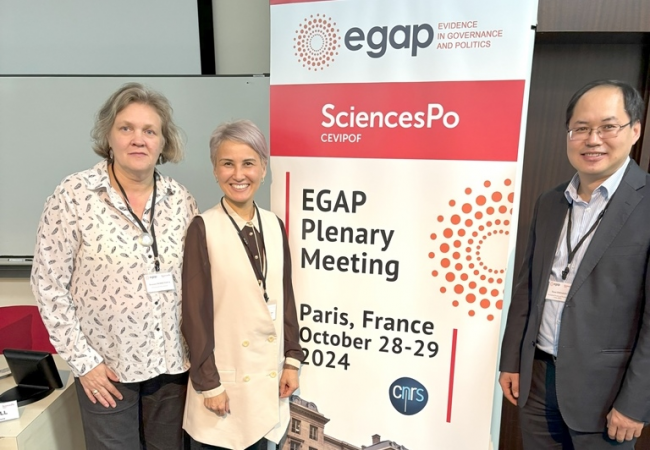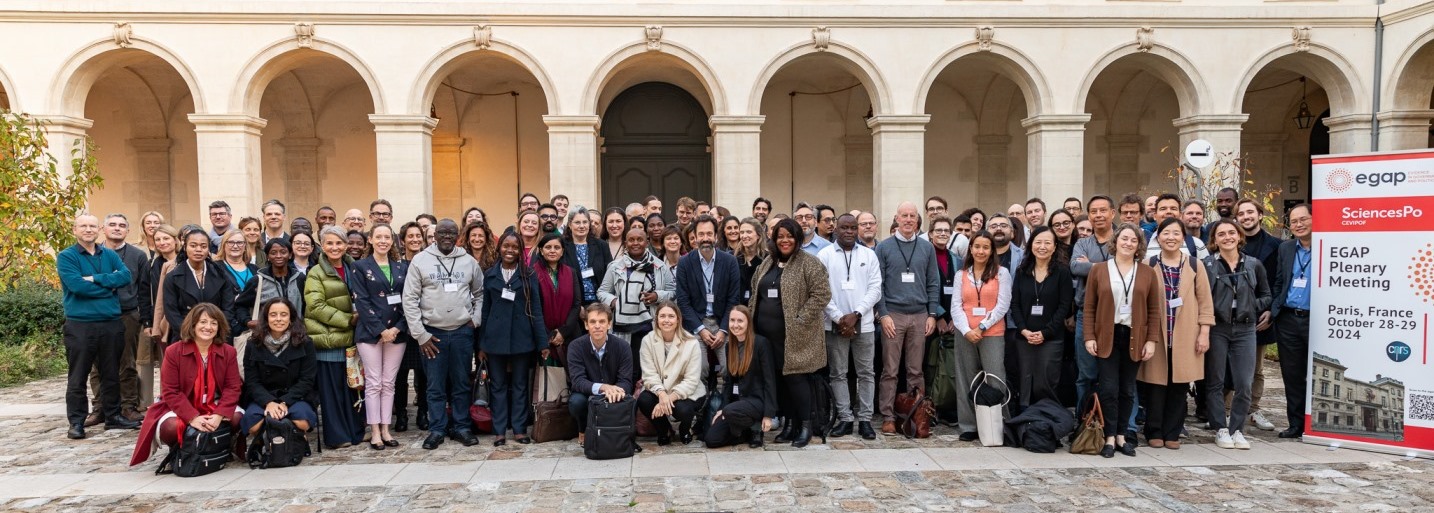
Chairperson of the DPI Board, Nadezhda DOBRETSOVA, attended the latest face-to-face meeting of participants of Evidence in Governance and Politics (EGAP) – a global research, evaluation, and learning network that promotes rigorous knowledge generation, innovation, and evidence-based policy development in governance and accountability. The EGAP event took place at Sciences Po [1], Paris.
The meeting focused on preliminary results from the fifth round of the Metaketa initiative, a collaborative research model designed to produce evidence on shared interests between academic researchers and policy practitioners. EGAP funds and coordinates research across multiple countries, grouped into themes, to advance innovative research, thorough analysis, and effective publication.
Between 2021 and 2024, Kyrgyzstan participated in Metaketa V, a large-scale field experiment exploring how training impacts women's empowerment and participation in local government decision-making. This round, which began in 2018 and concludes in 2024, included studies in Kyrgyzstan, Malawi, Nigeria, Pakistan, and Vietnam.
The study employed a unified methodology monitored by EGAP members, including scientists from Yale University, the University of California at Berkeley, and others. In Kyrgyzstan, the research team consisted of:
- Damir ESENALIEV, Senior Research Fellow at the Center for International Security and Development.
- Anselm HAGER, Associate Professor at Humboldt University.
- Lukas HENSEL, Research Fellow at Peking University.
- Elnura KAZAKBAYEVA, Head of the Evidence Research Center.
The Development Policy Institute served as a field agent, organizing events for women in regional areas. Nadezhda Dobretsova reflected on Kyrgyzstan's findings, explaining why the experiment yielded limited impact: “Women's groups in Kyrgyzstan have a long and rich history. In general, the level of women's participation in local government is high. Therefore, the experiment did not show any big changes compared to countries with a lower starting point.”
In addition to the Kyrgyzstan study, the meeting highlighted findings from other experimental research projects, including:
- Afghanistan: The impact of distance learning for children after the Taliban's rise to power.
- Brazil: The effects of police foot patrols on reducing street robberies.
- Catalonia: Field experiments on digital skills training.
- India: Household incentives and women's political participation in rural areas.
- Israel: Insights from cross-ethnic teacher assignments.
- Colombia: Caregiver mental health and early childhood development in conflict zones.
- Global: Podcasts as tools for reducing anti-immigrant sentiment and behavior.
- Israel (education system): Unlocking the power of cross-ethnic assignments for teachers.
These studies demonstrate EGAP’s commitment to creating robust, practical evidence that policymakers can confidently rely on to design reforms.
Nadezhda DOBRETSOVA emphasized the importance of experimental research skills for civil society representatives who propose solutions to government bodies. However, she noted that practitioners often lack sufficient expertise to predict the practical consequences of reforms. “EGAP’s approach has shown how experimental methods generate reliable evidence to assess impact,” Dobretsova said. “I hope we can adapt the EGAP format in Central Asia, perhaps by organizing ‘Knowledge Days’—intensive ‘deep dive’ sessions to build the skills of practitioners and policymakers in using experimental research to enhance reforms”.

______________
[1] Sciences Po – the Institute of Political Studies of France – is a higher education institution that is called the “training ground” for the political and diplomatic elite of France and which almost all the presidents of the republic have graduated from.